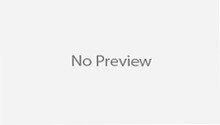What is web application?
Advantages of Servlets over CGI
Servlets are server side components that provides a powerful mechanism for developing server web applications for server side. Earlier CGI was developed to provide server side capabilities to the web applications. Although CGI played a major role in the explosion of the Internet, its performance, scalability and reusability issues make it less than optimal solutions. Java Servlets changes all that. Built from ground up using Sun’s write once run anywhere technology java servlets provide excellent framework for server side processing.
Using servlets web developers can create fast and efficient server side applications and can run it on any servlet enabled web server. Servlet runs entirely inside the Java Virtual Machine. Since the servlet runs on server side so it does not depend on browser compatibility.
Servlets have a number of advantages over CGI and other API’s. They are:
1. Platform Independence
Servlets are written entirely in java so these are platform independent. Servlets can run on any Servlet enabled web server. For example if you develop an web application in windows machine running Java web server, you can easily run the same on apache web server (if Apache Serve is installed) without modification or compilation of code. Platform independency of servlets provide a great advantages over alternatives of servlets.
2. Performance
Due to interpreted nature of java, programs written in java are slow. But the java servlets runs very fast. These are due to the way servlets run on web server. For any program initialization takes significant amount of time. But in case of servlets initialization takes place first time it receives a request and remains in memory till times out or server shut downs. After servlet is loaded, to handle a new request it simply creates a new thread and runs service method of servlet. In comparison to traditional CGI scripts which creates a new process to serve the request.
3. Extensibility
Java Servlets are developed in java which is robust, well-designed and object oriented language which can be extended or polymorphed into new objects. So the java servlets take all these advantages and can be extended from existing class to provide the ideal solutions.
4. Safety
Java provides very good safety features like memory management, exception handling etc. Servlets inherits all these features and emerged as a very powerful web server extension.
5. Secure
Servlets are server side components, so it inherits the security provided by the web server. Servlets are also benefited with Java Security Manager.
CGI(Common Gateway Interface)
CGI technology enables the web server to call an external program and pass HTTP request information to the external program to process the request. For each request, it starts a new process.

Disadvantages of CGI
There are many problems in CGI technology:
- If number of clients increases, it takes more time for sending response.
- For each request, it starts a process and Web server is limited to start processes.
- It uses platform dependent language e.g. C, C++, perl.
Advantage of Servlet
There are many advantages of Servlet over CGI. The web container creates threads for handling the multiple requests to the servlet. Threads have a lot of benefits over the Processes such as they share a common memory area, lighweight, cost of communication between the threads are low. The basic benefits of servlet are as follows:
- better performance: because it creates a thread for each request not process.
- Portability: because it uses java language.
- Robust: Servlets are managed by JVM so no need to worry about momory leak, garbage collection etc.
- Secure: because it uses java language.

- Java Servlets Overview
- Servlet Life Cycle
- Servlet Example
- Difference between ServletConfig and ServletContext
- Difference between GenericServlet and HttpServlet
- What is web application?
- Advantages of Servlets over CGI
- GenericServlet Example
- RequestDispatcher Example
- ServletConfig
- ServletContext
- Servlet Filter Example
- Database Access Example using Sevlet
- File Uploading Example using Servlet





